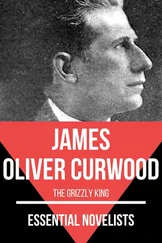The fact that she herself hated her name, and saw keenly how ridiculously it sounded after such a name as Beatrice, only made her feel the more indignant with Brandon. "His own name," she thought, bitterly, "is plebeian—not so bad as mine, it is true, yet still it is plebeian. Why should he feel so shocked at mine?" Of course, she knew him only as " Mr. Wheeler ." "Perhaps he has imagined that I had some grand name, and, learning my true one, has lost his illusion. He formerly esteemed me. He now despises me."
Beatrice was cut to the heart; but she was too proud to show any feeling whatever. She frequented the quarter-deck as before; though now she had no companion except, at turns, the good-natured Captain and the mate. The longer Brandon avoided her the more indignant she felt. Her outraged pride made sadness impossible.
Brandon remained in his state-room for about two weeks altogether. When at length he made his appearance on the quarter-deck he found Beatrice there, who greeted him with a distant bow.
There was a sadness in his face as he approached and took a seat near her which at once disarmed her, drove away all indignation, and aroused pity.
"You have been sick," she said, kindly, and with some emotion.
"Yes," said Brandon, in a low voice, "but now that I am able to go about again my first act is to apologize to you for my rudeness in quitting the table so abruptly as to make it seem like a personal insult to you. Now I hope you will believe me when I say that an insult to you from me is impossible. Something like a spasm passed over my nervous system, and I had to hurry to my room."
"I confess," said Beatrice, frankly, "that I thought your sudden departure had something to do with the conversation about me. I am very sorry indeed that I did you such a wrong; I might have known you better. Will you forgive me?"
Brandon smiled, faintly. "You are the one who must forgive."
"But I hate my name so," burst out Beatrice.
Brandon said nothing.
"Don't you? Now confess."
"How can I—" he began.
"You do, you do!" she cried, vehemently; "but I don't care—for I hate it."
Brandon looked at her with a sad, weary smile, and said nothing. "You are sick," she said; "I am thoughtless. I see that my name, in some way or other, recalls painful thoughts. How wretched it is for me to give pain to others!"
Brandon looked at her appealingly, and said, "You give pain? Believe me! believe me! there is nothing but happiness where you are."
At this Beatrice looked confused and changed the conversation. There seemed after this to be a mutual understanding between the two to avoid the subject of her name, and although it was a constant mortification to Beatrice, yet she believed that on his part there was no contempt for the name, but something very different, something associated with better memories.
They now resumed their old walks and conversations. Every day bound them more closely to one another, and each took it for granted that the other would be the constant companion of every hour in the day.
Both had lived unusual lives. Beatrice had much to say about her Hong- Kong life, the Chinese, the British officers, and the festivities of garrison life. Brandon had lived for years in Australia, and was familiar with all the round of events which may be met with in that country. He had been born in England, and had lived there, as has already been mentioned, till he was almost a man, so that he had much to say about that mother-land concerning which Beatrice felt such curiosity. Thus they settled down again naturally and inevitably into constant association with each other.
Whatever may have been the thoughts of Brandon during the fortnight of his seclusion, or whatever may have been the conclusion to which he came, he carefully refrained from the most remote hint at the home or the prospects of Beatrice. He found her on the seas, and he was content to take her as she was. Her name was a common one. She might be connected with his enemy, or she might not. For his part, he did not wish to know.
Beatrice also showed equal care in avoiding the subject. The effect which had been produced by the mention of her name was still remembered, and, whatever the cause may have been, both this and her own strong dislike to it prevented her from ever making any allusion either to her father or to any one of her family. She had no scruples, however, about talking of her Hong-Kong life, in which one person seemed to have figured most prominently—a man who had lived there for years, and given her instruction in music. He was an Italian, of whom she knew nothing whatever but his name, with the exception of the fact that he had been unfortunate in Europe, and had come out to Hong-Kong as bandmaster of the Twentieth Regiment. His name was Paolo Langhetti.
"Do you like music?" asked Brandon, abruptly.
"Above all things." said Beatrice, with an intensity of emphasis which spoke of deep feeling.
"Do you play?"
"Somewhat."
"Do you sing?"
"A little. I was considered a good singer in Hong-Kong; but that is nothing. I sang in the Cathedral. Langhetti was kind enough to praise me; but then he was so fond of me that whatever I did was right."
Brandon was silent for a little while. "Langhetti was fond of you?" he repeated, interrogatively, and in a voice of singular sweetness.
"Very," returned Beatrice, musingly. "He always called me 'Bice'— sometimes 'Bicetta,' 'Bicinola,' 'Bicina;' it was his pretty Italian way. But oh, if you could hear him play! He could make the violin speak like a human voice. He used to think in music. He seemed to me to be hardly human sometimes."
"And he loved to hear you sing?" said Brandon, in the same voice.
"He used to praise me," said Beatrice, meekly. "His praise used to gratify, but it did not deceive me. I am not conceited, Mr. Wheeler."
"Would you sing for me?" asked Brandon, in accents almost of entreaty, looking at her with an imploring expression.
Beatrice's head fell. "Not now—not yet—not here," she murmured, with a motion of her hand. "Wait till we pass beyond this ocean. It seems haunted."
Brandon understood her tone and gesture.
But the weeks passed, and the months, and they went over the seas, touching at Mauritius, and afterward at Cape Town, till finally they entered the Atlantic Ocean, and sailed North. During all this time their association was close and continuous. In her presence Brandon softened; the sternness of his features relaxed, and the great purpose of his life grew gradually fainter.
One evening, after they had entered the Atlantic Ocean, they were standing by the stern of the ship looking at the waters, when Brandon repeated his request.
"Would you be willing to sing now?" he asked, gently, and in the same tone of entreaty which he had used before.
Beatrice looked at him for a moment without speaking. Then she raised her face and looked up at the sky, with a deep abstraction in her eyes, as though in thought. Her face, usually colorless, now, in the moonlight, looked like marble; her dark hair hung in peculiar folds over her brow—an arrangement which was antique in its style, and gave her the look of a statue of one of the Muses. Her straight, Grecian features, large eyes, thin lips, and well-rounded chin—all had the same classic air, and Brandon, as he looked at her, wondered if she knew how fair she was. She stood for a moment in silence, and then began. It was a marvelous and a memorable epoch in Brandon's life. The scene around added its inspiration to the voice of the singer. The ocean spread afar away before them till the verge of the horizon seemed to blend sea and sky together. Overhead the dim sky hung, dotted with innumerable stars, prominent among which, not far above the horizon, gleamed that glorious constellation, the Southern Cross. Beatrice, who hesitated for a moment as if to decide upon her song, at last caught her idea from this scene around her, and began one of the most magnificent of Italian compositions:
Читать дальше












